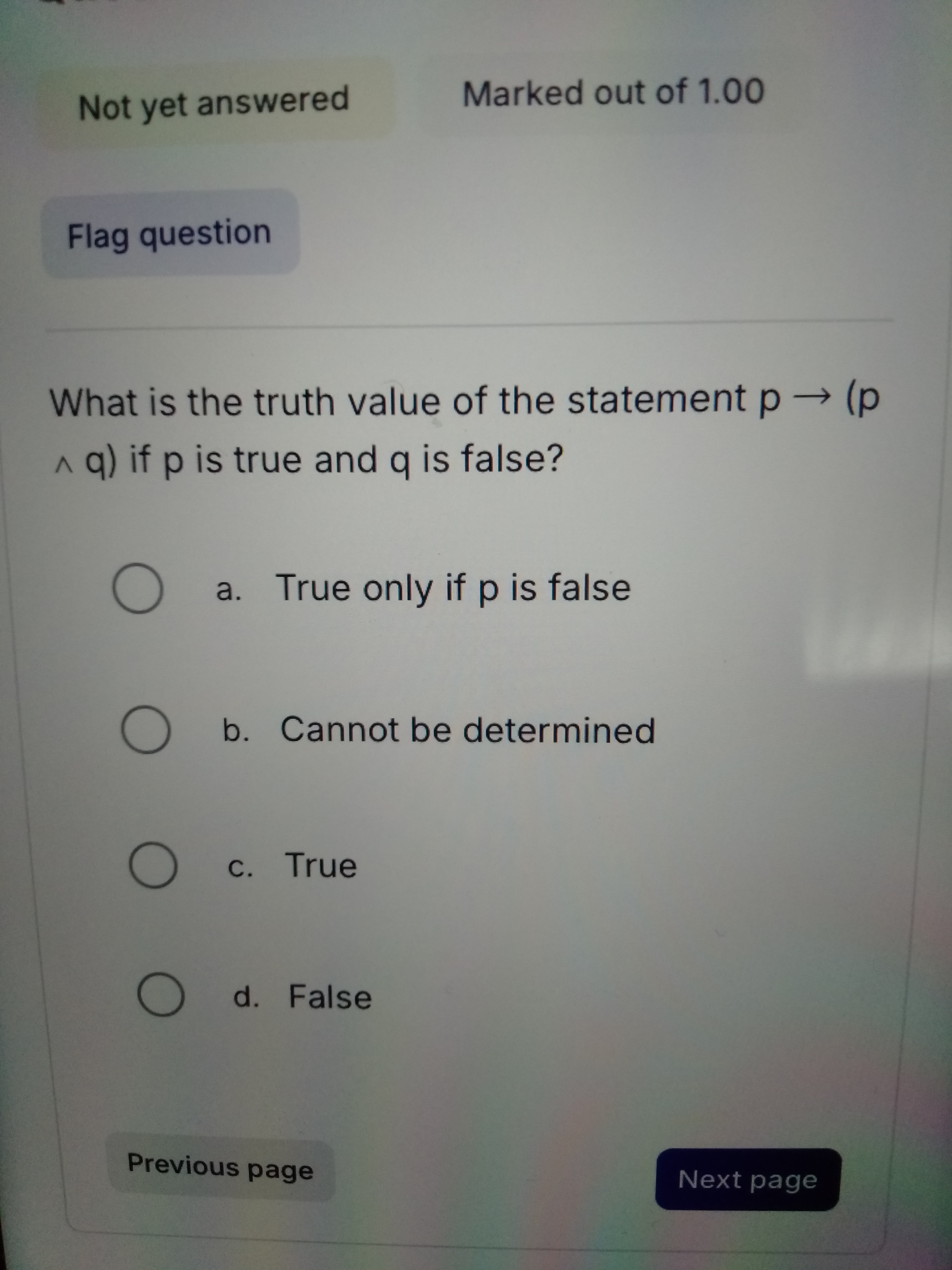What is the truth value of the statement p → (p ∧ q) if p is true and q is false?

Understand the Problem
The question is asking for the truth value of the logical statement p → (p ∧ q) under the conditions that p is true and q is false. To solve this, we will evaluate the truth value of the implication based on the given values of p and q.
Answer
False
Answer for screen readers
The truth value of the statement $p \to (p \land q)$ is False.
Steps to Solve
- Identify the values of p and q
Given that $p$ is true (T) and $q$ is false (F):
- $p = T$
- $q = F$
- Evaluate the expression $p \land q$
The logical conjunction $p \land q$ is true only if both $p$ and $q$ are true. Here, since $q$ is false: $$ p \land q = T \land F = F $$
- Evaluate the expression $p \to (p \land q)$
Now substitute the value of $p \land q$ into the implication $p \to (p \land q)$:
- Since $p = T$ and $p \land q = F$, the expression simplifies to: $$ p \to (p \land q) = T \to F $$
- Determine the truth value of the implication
The implication $T \to F$ is false. The implication $A \to B$ is only false when $A$ is true and $B$ is false: $$ T \to F = F $$
The truth value of the statement $p \to (p \land q)$ is False.
More Information
In logic, an implication $A \to B$ can be interpreted as "if A, then B." Its truth table indicates that the only case where the statement is false is when the antecedent (A) is true and the consequent (B) is false.
Tips
- Mistake: Assuming $p \to (p \land q)$ could be true since one of the components is true.
- Correction: Remember that the implication can only be false when the antecedent is true and the consequent is false.
AI-generated content may contain errors. Please verify critical information